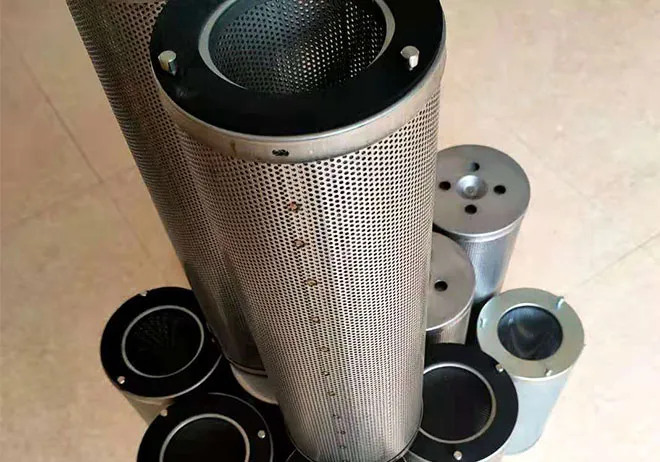 Tel:
+8615930870079
Tel:
+8615930870079
אוק . 18, 2024 02:14 Back to list
Exploring the Benefits of Metal Filter Elements in Industrial Applications
Understanding Metal Filter Elements Their Importance and Applications in Modern Industry
In today's fast-paced industrial environment, the effectiveness of filtration systems plays a crucial role in ensuring operational efficiency and product quality across various sectors. One essential component of these systems is the metal filter element, which has gained prominence due to its durability, efficiency, and versatility.
What Are Metal Filter Elements?
Metal filter elements are filtration devices made from various metallic materials such as stainless steel, aluminum, or brass. They are designed to remove particulate matter from liquids and gases, serving as a crucial part of filtration systems in a wide array of applications, including chemical processing, pharmaceuticals, food and beverage production, and even automotive industries.
These elements can be constructed in various designs, including pleated, cylindrical, or sintered forms, making them adaptable to different filtration requirements. Their robust nature allows them to withstand harsh environments, high temperatures, and pressures, making them an ideal choice for demanding applications.
Advantages of Metal Filter Elements
1. Durability One of the standout features of metal filter elements is their durability. Unlike traditional filter media, which may degrade over time or become clogged, metal filters maintain their structural integrity even under extreme conditions. This long lifespan translates to reduced replacement costs and less downtime for maintenance.
2. Reusability Metal filter elements are often designed to be cleaned and reused. This reusable feature is particularly beneficial in industrial settings, where the volume of filtered materials can be significant. Cleaning processes such as backwashing or ultrasonic cleaning can restore the filter to its original performance capacity, promoting sustainability and efficiency.
3. High Filtration Efficiency Metal filter elements can achieve excellent filtration efficiency in separating particulates from fluids or gases. The mesh configurations and pore sizes can be tailored to specific filtration requirements, allowing for precise separation of contaminants.
4. Resistance to Chemicals and Corrosion Many metal filter elements are resistant to chemical reactions, which is vital in industries dealing with aggressive substances. For instance, stainless steel filters can withstand exposure to oils, solvents, and acidic or basic environments, thereby ensuring a reliable filtration process without compromising the integrity of the filter itself.
metal filter element

5. Reduced Pressure Drop Metal filters often exhibit a lower pressure drop compared to other types of filters. This characteristic can lead to energy savings in pumping costs, proving advantageous in large-scale operations.
Applications of Metal Filter Elements
The versatility of metal filter elements opens the door to numerous applications in different industries
- Chemical Processing In the production of chemicals, metal filters are crucial for removing particulate impurities, allowing for cleaner and safer chemical formulations. - Pharmaceuticals The stringent quality standards in pharmaceuticals necessitate high-level filtration, where metal filter elements can ensure that products remain free from contaminants.
- Food and Beverage In the food industry, metal filters help maintain hygiene and quality by effectively removing undesired particles during processing.
- Hydraulic and Lubrication Systems In engines and machinery, metal filter elements protect critical components by removing particulate debris and ensuring clean fluid flow.
- Air Filtration Metal filters are also utilized in HVAC systems to ensure that air quality is maintained by filtering out dust and allergens.
Conclusion
Metal filter elements are an indispensable part of modern filtration systems across various industries. Their durability, reusability, and high-efficiency characteristics make them a superior choice for challenging filtration applications. As industries continue to advance and evolve, the role of metal filter elements will remain critical in safeguarding product quality and operational efficiency. Investing in high-quality metal filter elements is essential for any organization looking to enhance their filtration processes and achieve long-term success.
-
Types and Applications of Air Filtration CartridgesNewsJul.28,2025
-
The Role of Gas Turbine FiltersNewsJul.28,2025
-
Mastering Air Filter Cartridge UseNewsJul.28,2025
-
Advanced Turbine Filters for Modern Gas TurbinesNewsJul.28,2025
-
Cellulose Air Filter Cartridge Advantages in Dust FiltrationNewsJul.28,2025
-
Cellulose Filters for Air Particle ReductionNewsJul.28,2025

 Email:
Email:





